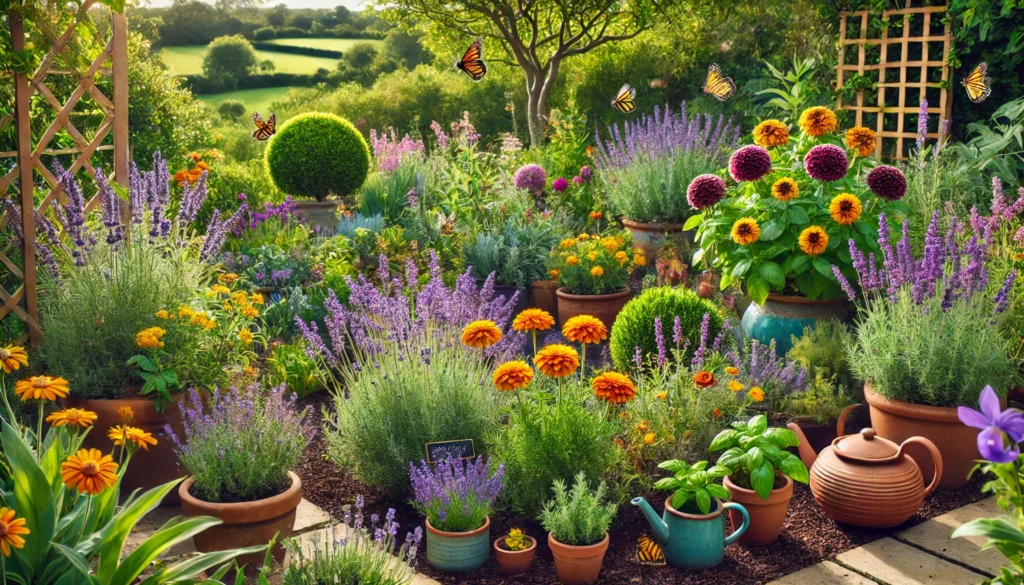Keeping your garden healthy and pest-free is a top priority for gardeners, but traditional pesticides can harm the environment, beneficial insects, and even your plants. Fortunately, nature offers a safe, effective alternative: plants that naturally repel pests. These plants not only enhance your garden’s beauty but also protect your fruits, vegetables, and flowers from unwanted insects.
In this guide, we will explore the best plants that serve as natural repellents, helping you maintain a healthy, eco-friendly garden.
1. Marigolds (Tagetes)
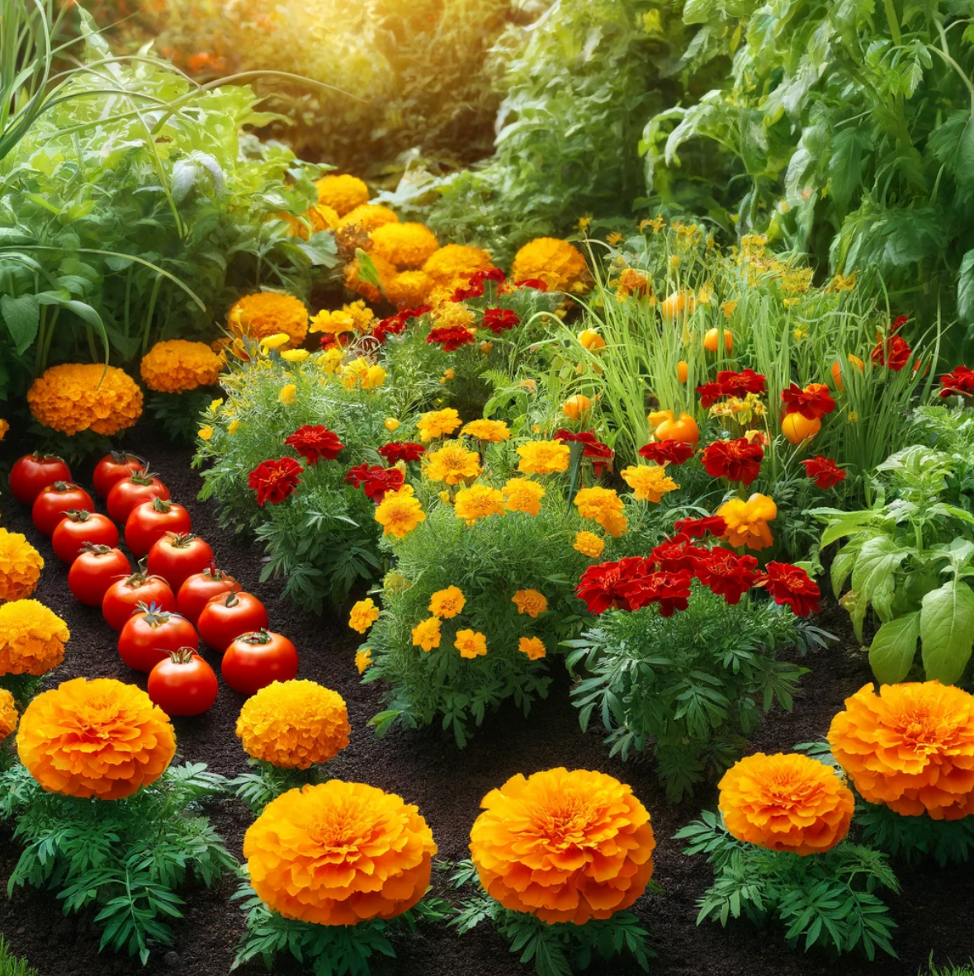
Marigolds are not only vibrant and beautiful, but they are also powerful natural pest repellents. Their strong scent deters a variety of pests, including aphids, mosquitoes, and nematodes. Additionally, marigolds attract beneficial insects such as ladybugs, which feed on harmful garden pests.
Best For Repelling: Aphids, nematodes, mosquitoes
How to Use:
- Plant marigolds around the perimeter of vegetable gardens or near crops that are particularly susceptible to pests.
- Marigolds are excellent companions for tomatoes, as they help repel whiteflies and other insects that often plague tomato plants.
2. Lavender (Lavandula)
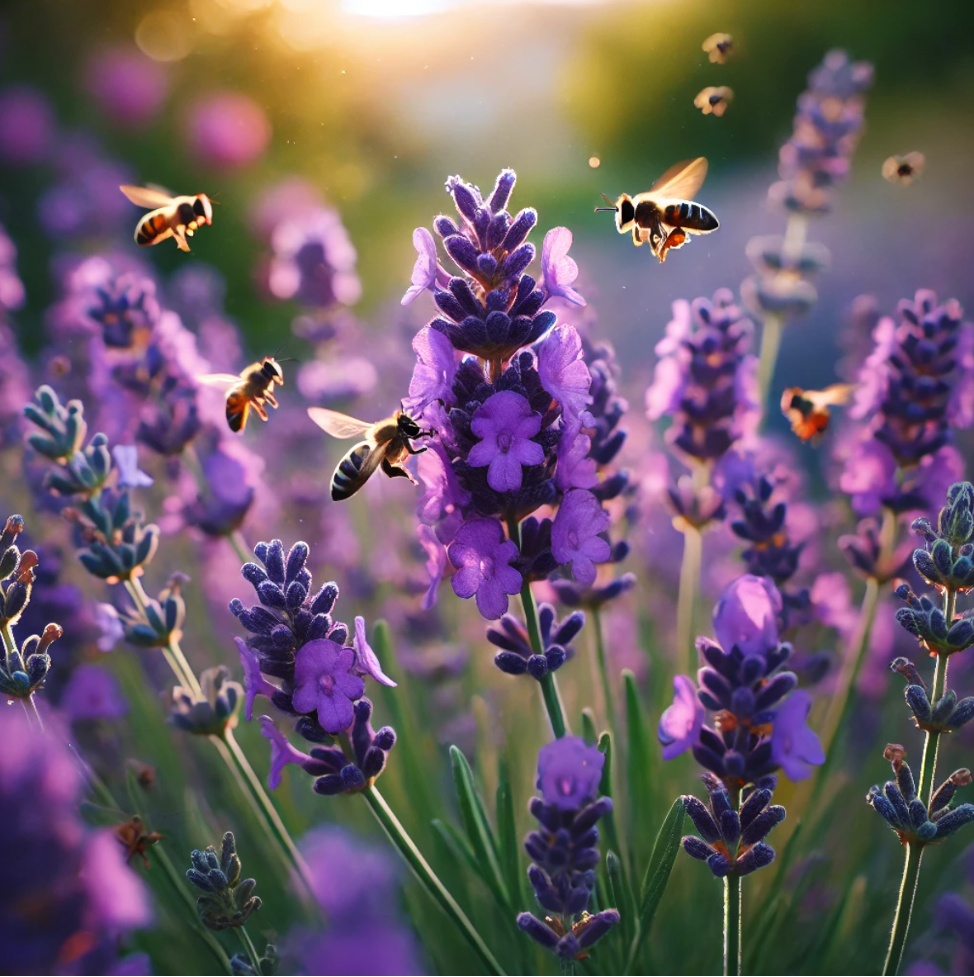
Lavender’s calming scent is a favorite for humans but acts as a natural deterrent for many garden pests. Its aromatic oils repel moths, fleas, flies, and mosquitoes, making it a fantastic addition to both your garden and home.
Best For Repelling: Moths, fleas, flies, mosquitoes
How to Use:
- Plant lavender near seating areas or walkways to keep mosquitoes and flies away.
- Dry lavender flowers and use them indoors as sachets to repel moths from closets and storage areas.
3. Basil (Ocimum basilicum)
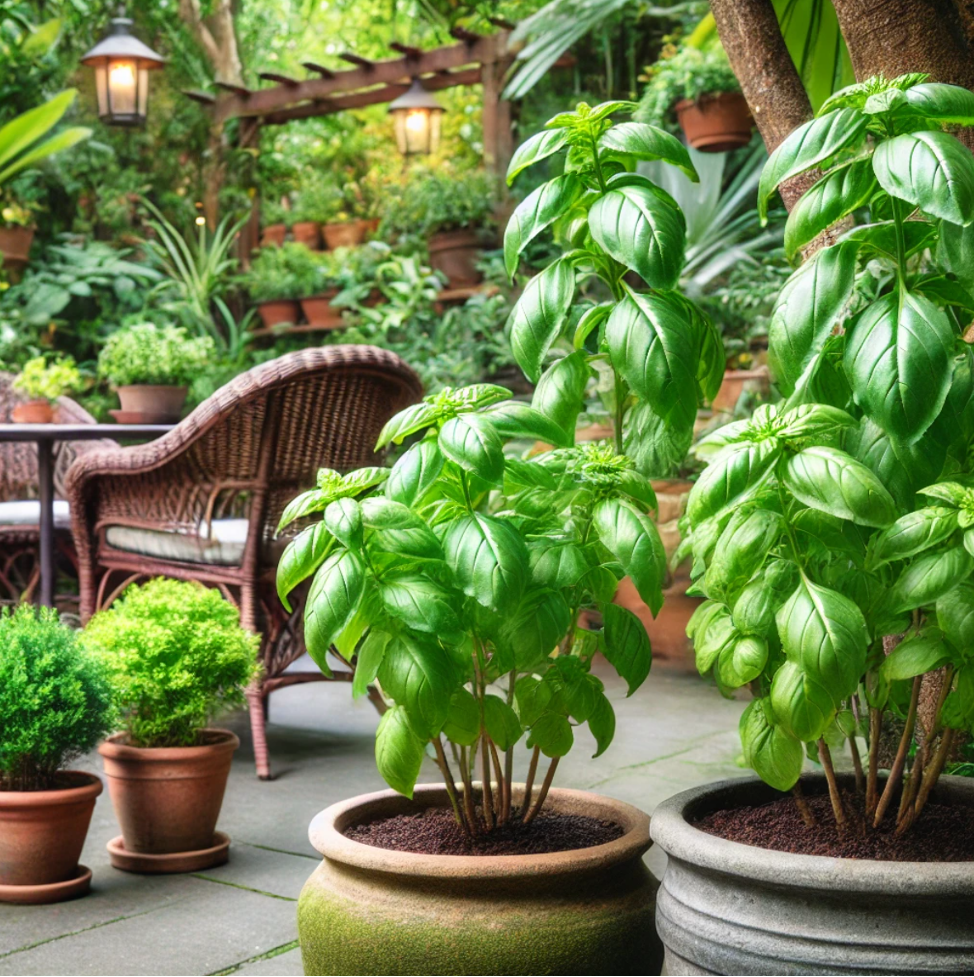
Basil is a popular herb in the kitchen, but it’s also a great insect repellent. Its strong aroma repels mosquitoes and flies, making it a valuable addition to herb gardens and vegetable plots. Basil can also enhance the flavor of nearby plants like tomatoes when grown together.
Best For Repelling: Mosquitoes, flies
How to Use:
- Plant basil around outdoor seating areas to help keep mosquitoes at bay.
- Place pots of basil near windows and doors to prevent flies from entering your home.
4. Mint (Mentha)
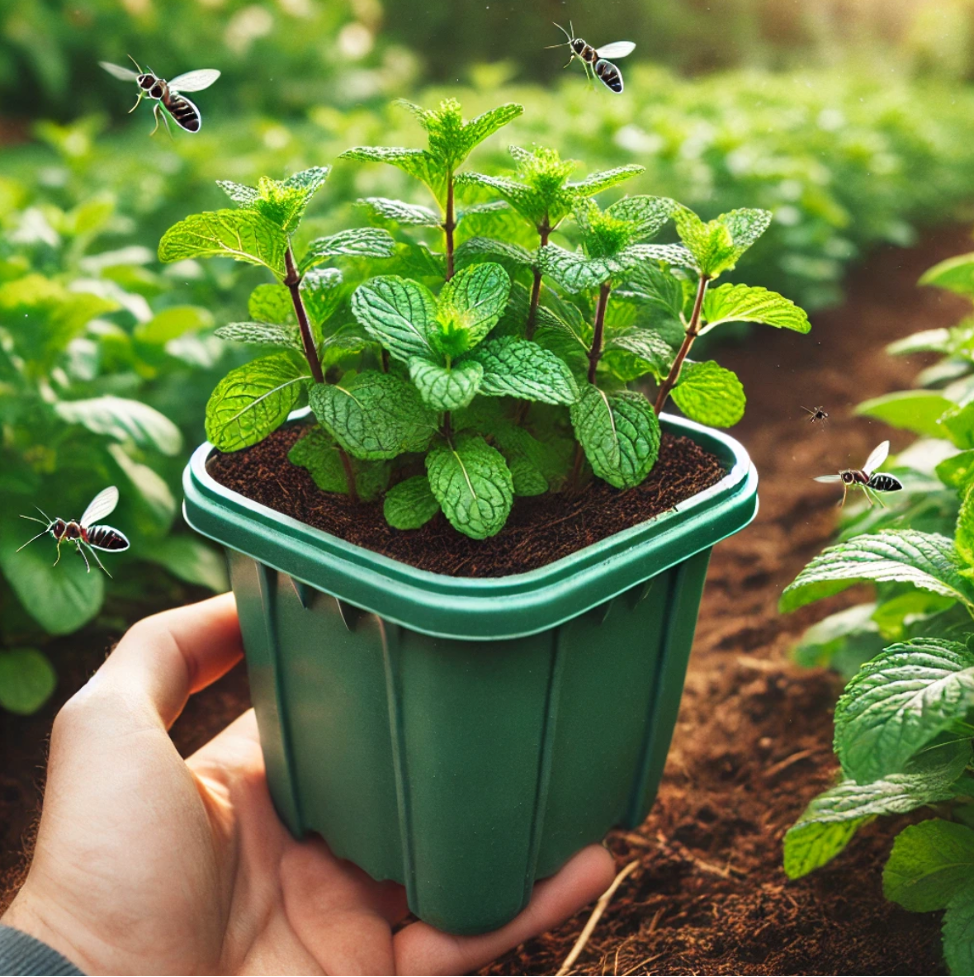
Mint is a fast-growing herb known for its pest-repelling abilities. The scent of mint repels ants, mosquitoes, and even rodents, making it a versatile plant for garden and home use. However, mint can be invasive, so it’s best grown in containers.
Best For Repelling: Ants, mosquitoes, rodents
How to Use:
- Plant mint in pots and place them around your garden to repel ants and mosquitoes.
- Use mint leaves to create a natural pest spray by steeping the leaves in water, then spraying it around entry points to keep insects out of your home.
5. Rosemary (Salvia rosmarinus)
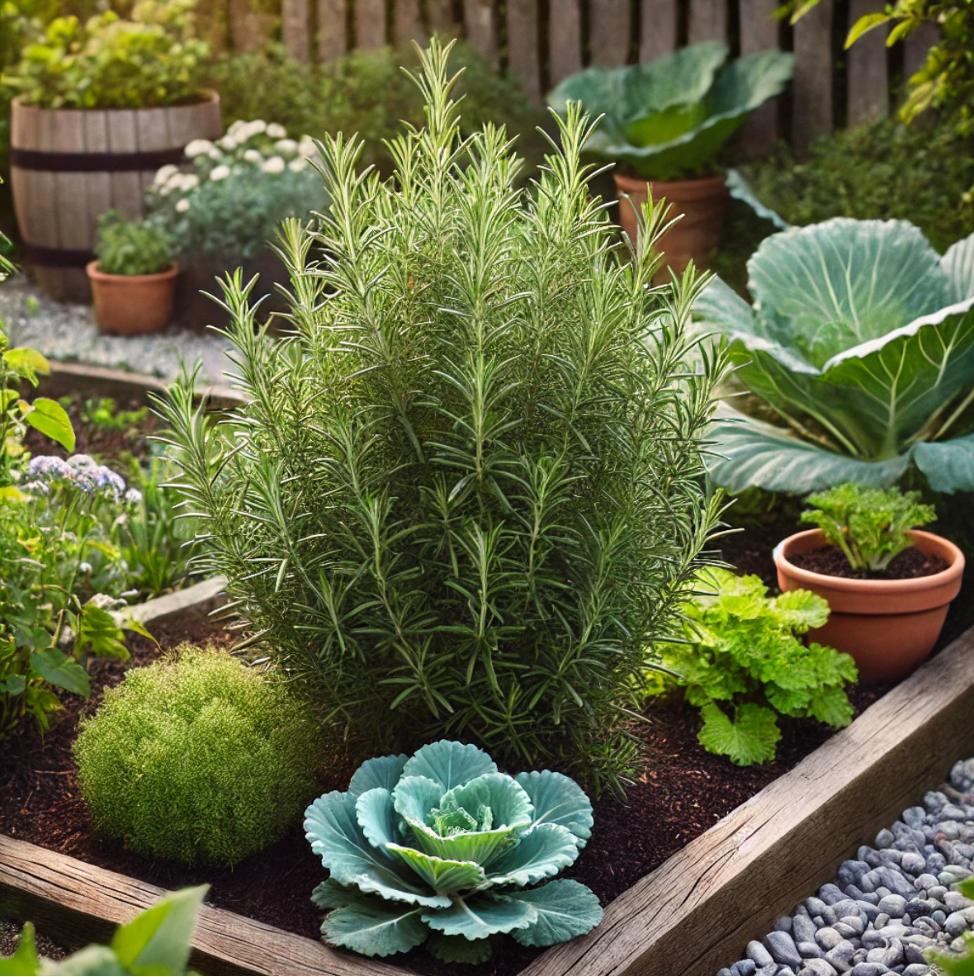
Rosemary is a fragrant herb that doubles as a natural insect repellent. Its woody aroma deters mosquitoes, cabbage moths, and other common garden pests. Additionally, rosemary can thrive in various climates, making it a resilient option for many gardeners.
Best For Repelling: Mosquitoes, cabbage moths
How to Use:
- Plant rosemary around vegetable gardens to keep cabbage moths and other pests at bay.
- Place rosemary near windows and doors to prevent insects from entering your home.
6. Chrysanthemums (Chrysanthemum)
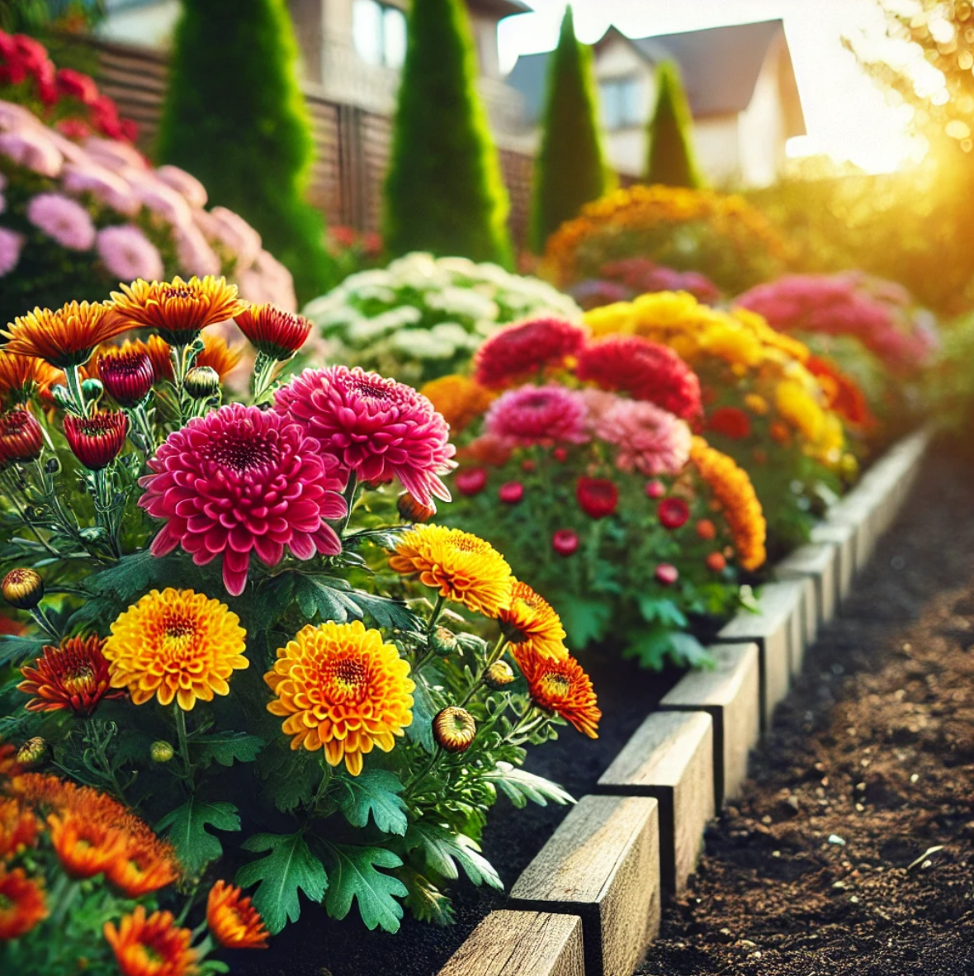
Chrysanthemums, or mums, contain pyrethrum, a natural insecticide used in many commercial insect repellents. This makes them effective against a wide variety of pests, including ants, roaches, ticks, and fleas.
Best For Repelling: Ants, roaches, ticks, fleas
How to Use:
- Plant chrysanthemums around the perimeter of your garden to keep pests out.
- Use dried chrysanthemum flowers to make a natural insecticide spray for plants.
7. Lemongrass (Cymbopogon citratus)
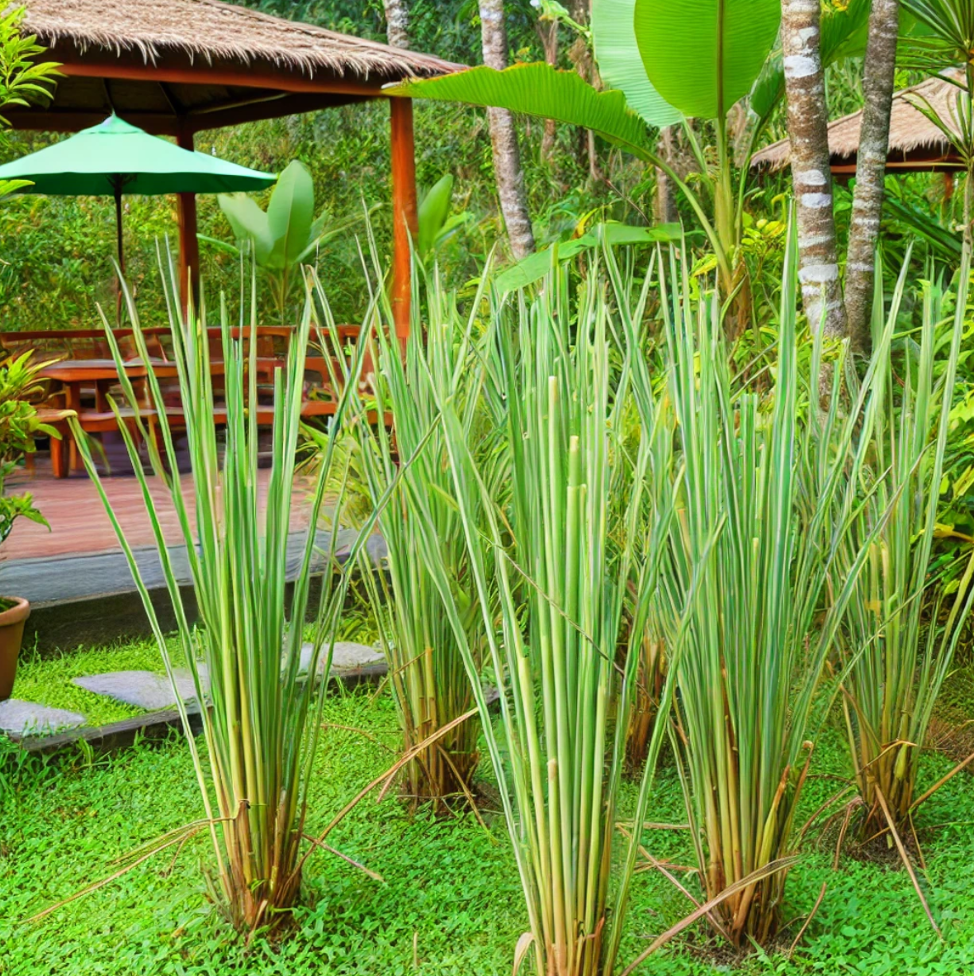
Lemongrass contains citronella, a natural oil that repels mosquitoes and flies. This tropical plant thrives in warm climates and is often used in gardens to protect against mosquitoes, especially near outdoor seating areas.
Best For Repelling: Mosquitoes, flies
How to Use:
- Plant lemongrass near patios or outdoor seating areas to naturally repel mosquitoes.
- Use lemongrass leaves to create a homemade citronella spray for personal use or in the garden.
8. Petunias (Petunia)
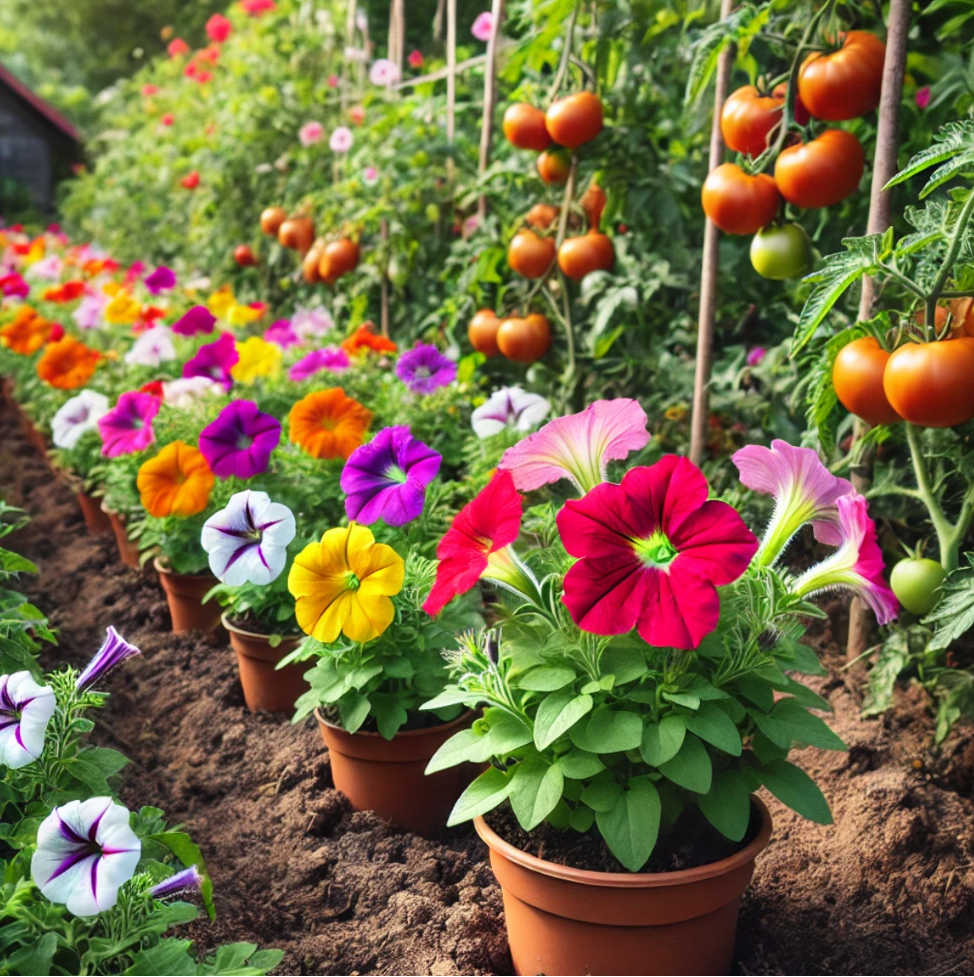
Petunias are often referred to as “nature’s pesticide” due to their ability to repel a wide variety of pests, including aphids, tomato hornworms, and squash bugs. Their bright, colorful flowers also add beauty to any garden.
Best For Repelling: Aphids, tomato hornworms, squash bugs
How to Use:
- Plant petunias around vegetable gardens, especially near tomatoes, beans, and peppers, to protect against common pests.
- Grow petunias in pots and place them around entryways to deter pests from entering your home.
9. Catnip (Nepeta cataria)
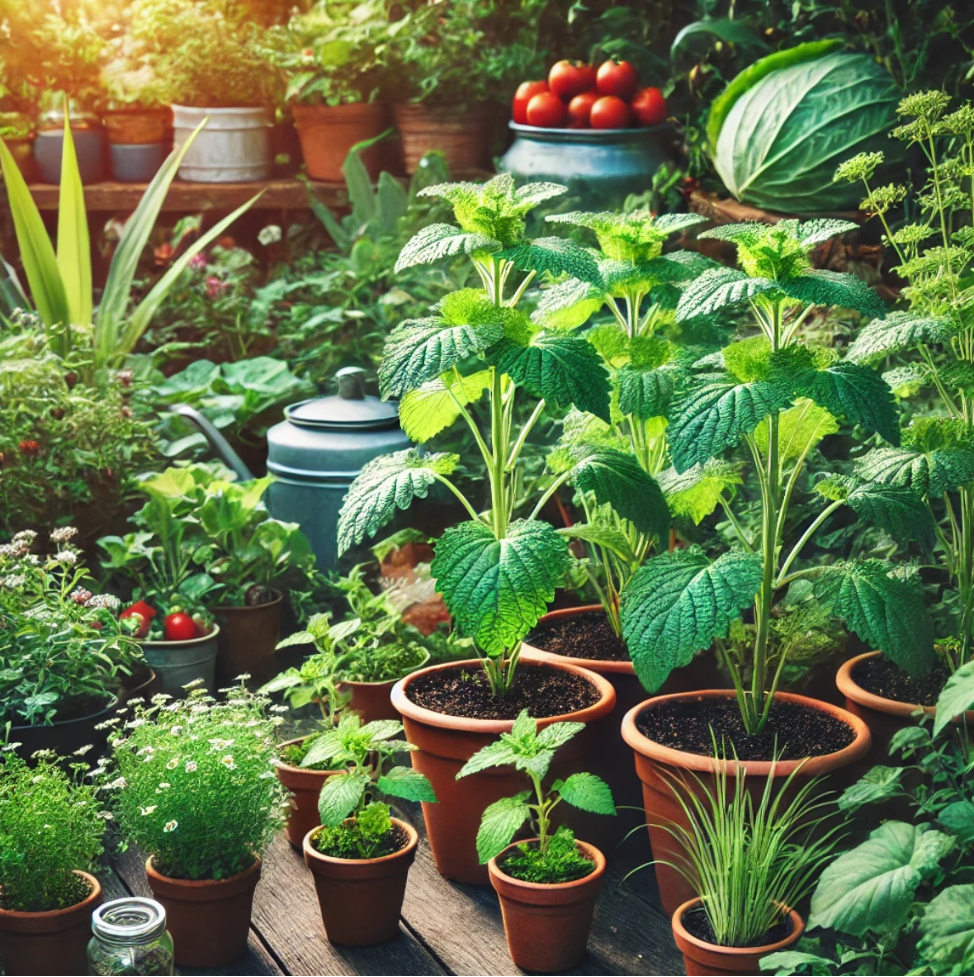
While catnip may attract your feline friends, it repels many pests, particularly mosquitoes, aphids, and ants. Catnip contains nepetalactone, a natural compound that is more effective at repelling mosquitoes than DEET, a common chemical found in insect repellents.
Best For Repelling: Mosquitoes, aphids, ants
How to Use:
- Plant catnip in pots and place them around your garden to keep mosquitoes and aphids away.
- Use dried catnip leaves to create sachets that repel ants and other insects indoors.
10. Garlic (Allium sativum)
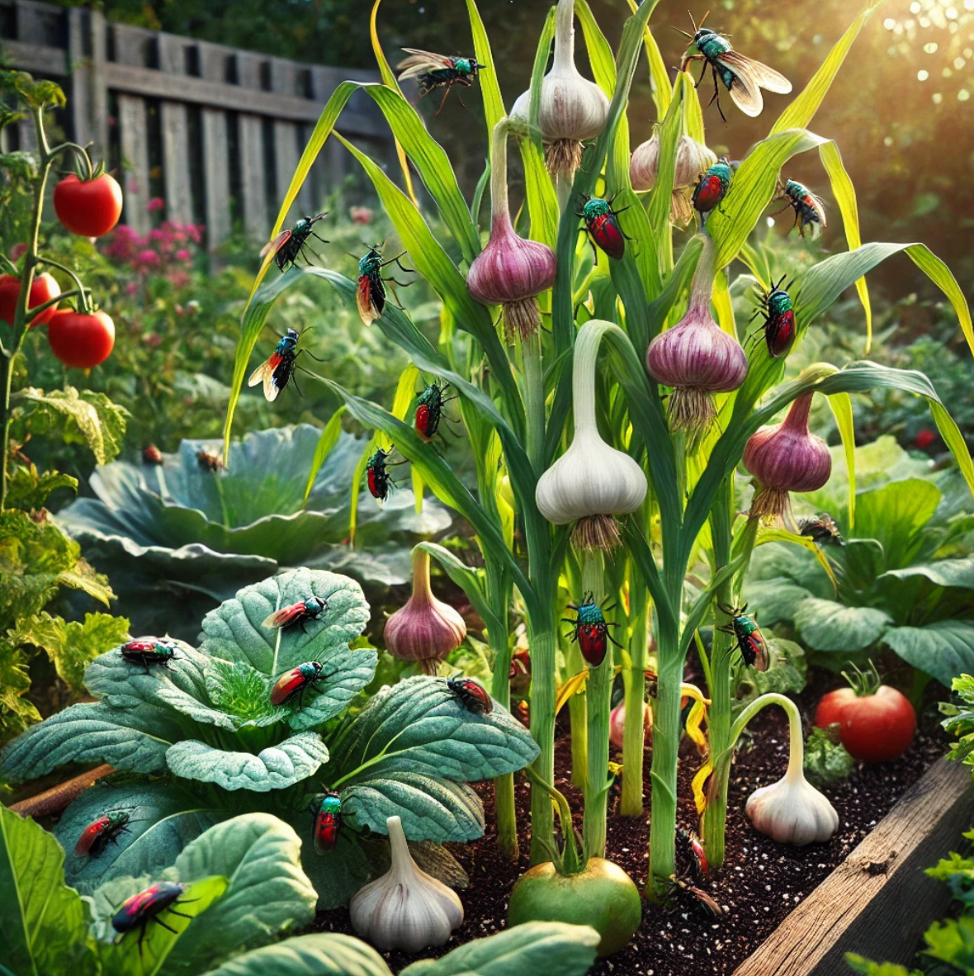
Garlic’s strong odor makes it an excellent natural repellent for a variety of garden pests, including aphids, mosquitoes, and Japanese beetles. Planting garlic not only helps repel pests but also provides a useful culinary herb.
Best For Repelling: Aphids, mosquitoes, Japanese beetles
How to Use:
- Plant garlic near roses and other flowers to protect them from aphid infestations.
- Use garlic cloves to create a natural insecticide spray by crushing them and mixing with water, then spraying it on affected plants.
Conclusion
Incorporating pest-repelling plants into your garden is an eco-friendly and effective way to manage unwanted insects while enhancing the beauty and health of your outdoor space. From marigolds and lavender to garlic and catnip, these plants offer natural protection against common pests without the need for harmful chemicals. Whether you’re looking to safeguard your vegetable garden or enjoy pest-free outdoor gatherings, these plants can make a significant difference in keeping your garden thriving and pest-free.

